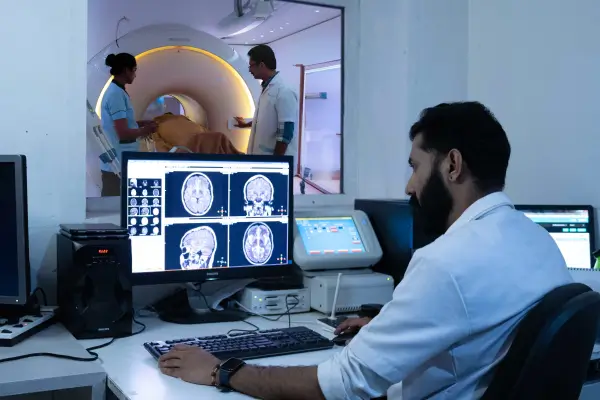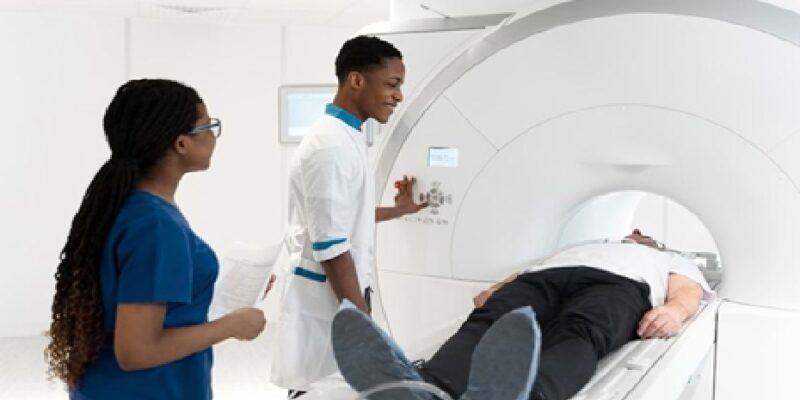MRI has revolutionized mental health care by mapping brain function and identifying abnormalities linked to disorders. Functional MRI (fMRI) provides non-invasive insights into brain activity, enabling early detection, personalized treatments, and evaluation of therapy effectiveness. Explore how MRI advances diagnosis and treatment in mental health.
Understanding Brain Function And Mental Health
Mental health challenges around the brain which governs cognition, emotion, and behavior. According to Kimball Health Services, understand that disorders such as depression, anxiety, and schizophrenia often arise from changes in brain structure and function. By studying these changes, we can uncover the underlying mechanisms of these conditions and develop more effective treatments.
Neuroscience identifies specific brain regions at the core of mental health disorders. For example, the amygdala is frequently hyperactive in anxiety, while the prefrontal cortex shows altered activity in depression. These insights drive the development of targeted therapies that address the root causes of these conditions.
Mental health is shaped by a dynamic interplay of genetics, neurobiology, and life experiences, necessitating a comprehensive and patient-centered approach. Advanced imaging techniques, such as MRI, provide deeper insights into mental health conditions, enabling precise diagnosis and personalized care.
How MRI Technology Works
MRI uses a magnetic field, radio waves, and a computer to create detailed images of body tissues without ionizing radiation, making it safer than X-rays or CT scans. The process aligns protons in the body with the magnetic field, and radiofrequency pulses temporarily disrupt this alignment. As protons realign, they emit signals captured to generate high-resolution images, revealing abnormalities like tumors or reduced blood flow.
Functional MRI (fMRI) extends this by measuring real-time brain activity through changes in blood flow and oxygenation based on neurovascular coupling. This technology helps identify brain regions active during cognitive and emotional tasks, offering valuable insights into mental health disorders for improved diagnosis and treatment.
Advantages Of Using MRI for Brain Mapping
MRI offers several key advantages in mental health care:
- Non-Invasive Safety: MRI avoids surgical procedures and harmful radiation, allowing repeated imaging to track brain function over time or during treatment.
- High Spatial Resolution: MRI provides detailed visualization of brain structures and connections, aiding in understanding disruptions contributing to mental health disorders.
- Real-Time Activity Monitoring: Functional MRI (fMRI) captures dynamic brain activity, revealing how mental health conditions affect cognitive and emotional processes. For example, fMRI studies show altered emotional responses in depression, guiding targeted interventions.
These capabilities make MRI an invaluable tool for advancing mental health diagnostics and treatments.
Applications Of MRI in Mental Health Care

MRI has diverse applications in mental health care, bridging research and clinical practice:
- Understanding Neural Mechanisms: Functional MRI (fMRI) studies reveal how brain regions, like the hyperactive amygdala or altered prefrontal cortex in anxiety disorders, contribute to mental health conditions, guiding targeted therapies.
- Early Detection: MRI identifies biomarkers for conditions like schizophrenia and bipolar disorder, enabling earlier intervention and improved patient outcomes.
- Assessing Treatment Efficacy: fMRI tracks brain activity changes during psychotherapy or medication, helping clinicians refine personalized treatment plans for better results.
These capabilities underscore MRI’s pivotal role in advancing mental health diagnosis, treatment, and research.
Challenges And Limitations Of Using MRI for Brain Mapping
MRI has challenges despite its benefits. High costs and limited accessibility can restrict its availability, creating disparities in mental health care and limiting large-scale studies or MRI-guided treatments in some populations.
While MRI provides valuable biological insights, it cannot fully capture the complexity of mental health disorders influenced by genetics, environment, and personal history. It must be combined with other assessment tools for a holistic understanding.
Interpreting MRI data is also complex due to individual brain variability, making distinguishing healthy from pathological activity difficult. Additionally, neuroimaging advancements require continuous education and training for healthcare professionals.
Future Developments And Advancements In MRI Technology For Mental Health Care
The future of MRI in mental health care is bright, with advancements like AI-driven analysis enabling faster, more accurate diagnoses by detecting patterns and anomalies. Innovations such as diffusion tensor imaging (DTI) enhance resolution, visualizing white matter tracts and aiding understanding conditions like autism and brain injuries. Portable MRI devices promise improved accessibility, facilitating early detection and intervention in remote or underserved areas to enhance outcomes.
The Role Of MRI in Personalized Treatment Plans For Mental Health Disorders
As mental health care evolves, personalized treatment plans are becoming increasingly important. MRI, exceptionally functional MRI (fMRI), plays a pivotal role by providing objective data on brain function to inform treatment strategies. Clinicians can tailor interventions to target these areas by identifying specific neural patterns that enhance therapeutic outcomes.
For conditions like depression or anxiety, fMRI at Tellica Imaging, https://tellicaimaging.com/, helps pinpoint the most effective therapeutic approaches. Clinicians can monitor brain activity before and after treatment, enabling real-time adjustments to treatment plans for improved results.
Moreover, MRI data strengthens communication between providers and patients. Visualizing brain activity and changes fosters patient understanding of their condition, encourages collaboration, and enhances adherence to treatment plans, ultimately improving outcomes.
Conclusion: The Impact Of MRI on Improving Mental Health Care
In conclusion, MRI has revolutionized the understanding of brain function in mental health care, opening new possibilities for diagnosis, treatment, and personalized care. By visualizing brain activity, MRI has transformed how we approach mental health disorders.
As research advances, MRI will continue to shape future practices and become an essential tool in mental health care. With ongoing technological progress and a focus on personalized treatment, MRI will improve individuals’ mental health conditions outcomes, enhancing their quality of life.
MRI offers hope and innovation in this evolving field, providing deeper insights into the brain and paving the way for more effective treatments and interventions. The potential of MRI to transform mental health care is boundless








Comments